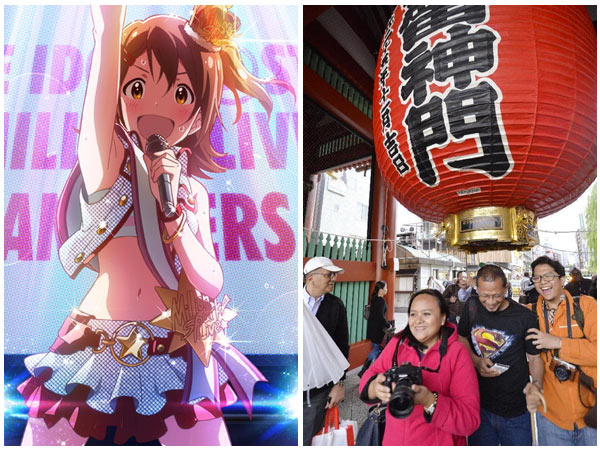
The holiday season continues, and most of us are hoping for a visit by Santa’s helpers. Remember, J-List is offering free shipping on all J-List anime and kanji T-shirts and shrinkwrapped visual novels shipping from San Diego, for the rest of the month!
Running an Internet business as an American expat in Japan has certainly been an interesting experience. There isn’t much in the way of entrepreneurial spirit here, and when I started J-List in 1996 I had to overcome the shock of family members and friends who couldn’t understand why anyone would give up a steady job teaching English to sell Pokemon bento boxes and other weird Japanese products on the Internet. It’s common for Japanese companies to be behind the curve technologically, and several of the toy distributors we work with still send us faxes to tell us about upcoming products, instead of using email or (Heaven forbid) setting up a product database with an RSS feed we can access. Another interesting aspect of running a business in Japan is hiring staff. Rather than a freestyle résumé which lists a person’s achievements (and shows you how good they are at preparing a résumé), Japanese job applicants fill out a standardized form called a 履歴書 rireki-sho or work and education record which shows their entire background at a glance. During the interview process, applicants are encouraged to show humility about their past achievements, downplaying everything they’ve done with their lives and suppressing their personality in ways no American could manage. The rule appears to be, the person who shows the least personality during the interview process will be the one to get the job, though that rule certainly doesn’t apply with our company.
Yes, the business world does seem to work quite differently here for some reason. Japan is a capitalist country, with companies competing with each other to win customers, but some of the things they do seem very different from the West. Instead of disrupting an existing industry and picking up the pieces, the standard model in the U.S., Japanese companies compete “cooperatively,” with Sony never trying to screw over Panasonic to sell more TVs. Sometimes it’s difficult for J-List to switch suppliers from one company to another because distributors avoid “stealing” customers from their competitors, which is considered an impolite thing to do (though necessary in the business world occasionally). You may have read about the butter shortage Japan is facing this year, which is threatening Japan’s Christmas cake industry. While there are many factors why Japan is having problems supplying enough butter, including inflexible government rules and the lack of children willing to take over family dairy farms, another issue is Japan’s lack of entrepreneurial spirit, which keeps many from finding solutions to problems in innovative ways, perhaps with farms run by corporations instead of small mom-and-pop families.
The holidays are approaching fast, and J-List has been shipping hundreds of products a day to people all over the world. We’re having a great free shipping sale on all T-shirts and H-games/visual novels that ship out of San Diego, with greatly reduced shipping for our international customers. Make an order now!
















